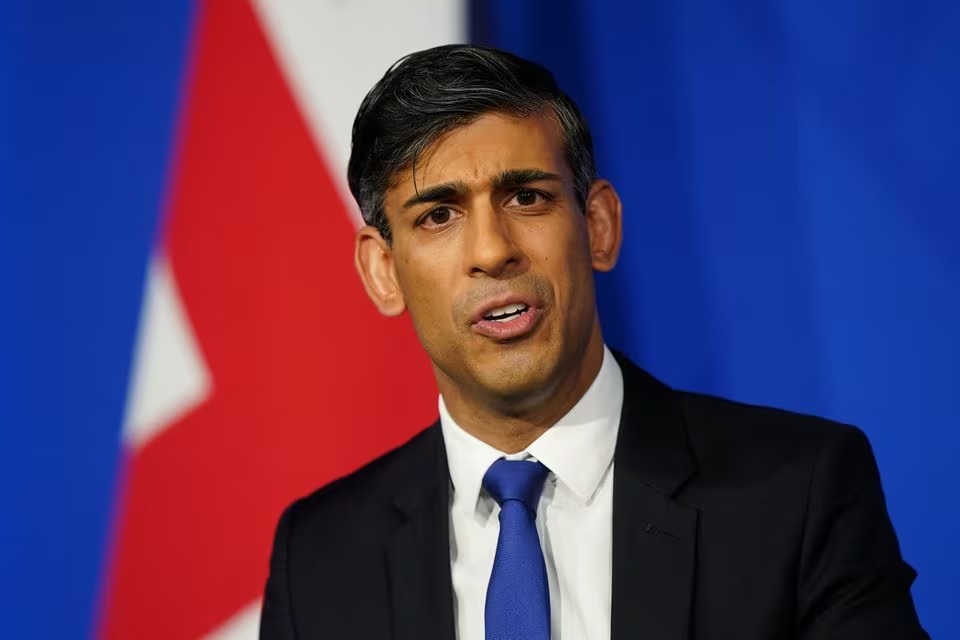Prime Minister Rishi Sunak faces the most dangerous moment of his premiership this week, when he is due to appear before a COVID-19 inquiry and must win a crunch vote in parliament on his plan to revive a policy to send asylum seekers to Rwanda.
Just over a year since he became prime minister, Sunak is struggling to maintain his authority, as politicians on both the left and the right of his Conservative Party are threatening to vote against his flagship asylum policy.
Parliament will hold a first vote on Tuesday on the legislation that would override some human rights law with the intention that this would allow the first deportation flights to leave for Rwanda before a national election expected next year.
The proposed law is opposed by some moderate Conservative politicians who are worried about Britain breaching its human rights obligations and also by right-wing lawmakers who want the government to go further. Both sides are taking legal advice before deciding how to vote.
For Sunak, struggling to revive a weak UK economy and heavily trailing the main opposition party in opinion polls, the Rwanda policy has become the defining issue for his government, despite lawyers saying at every stage that it will not work.
“The Rwanda policy has become a totemic struggle and it has liberated the factions in the Conservative Party to continue their all-out war,” said Tony Travers, a politics professor at the London School of Economics.
The plan was ruled unlawful by the UK’s Supreme Court last month, which said genuine refugees would be at risk of being returned to their home countries where they might face potential violence or ill treatment, which would breach British and international law.
The government has spent about a quarter of a billion pounds on the scheme in the hope it will deter the tens of thousands of people – including from Afghanistan, Iran and Iraq – who arrive on the south coast of England after crossing in small boats from France.
In a sign of how uncertain Sunak is about the size of any parliamentary rebellion, he decided against making it a confidence vote. If Sunak had done so and lost, he would have faced calls to hold a general election.
But the prime minister stands to be badly weakened if he loses any vote on the legislation. Only 29 Conservative members of parliament would need to rebel to defeat the government.
Source : Reuters


